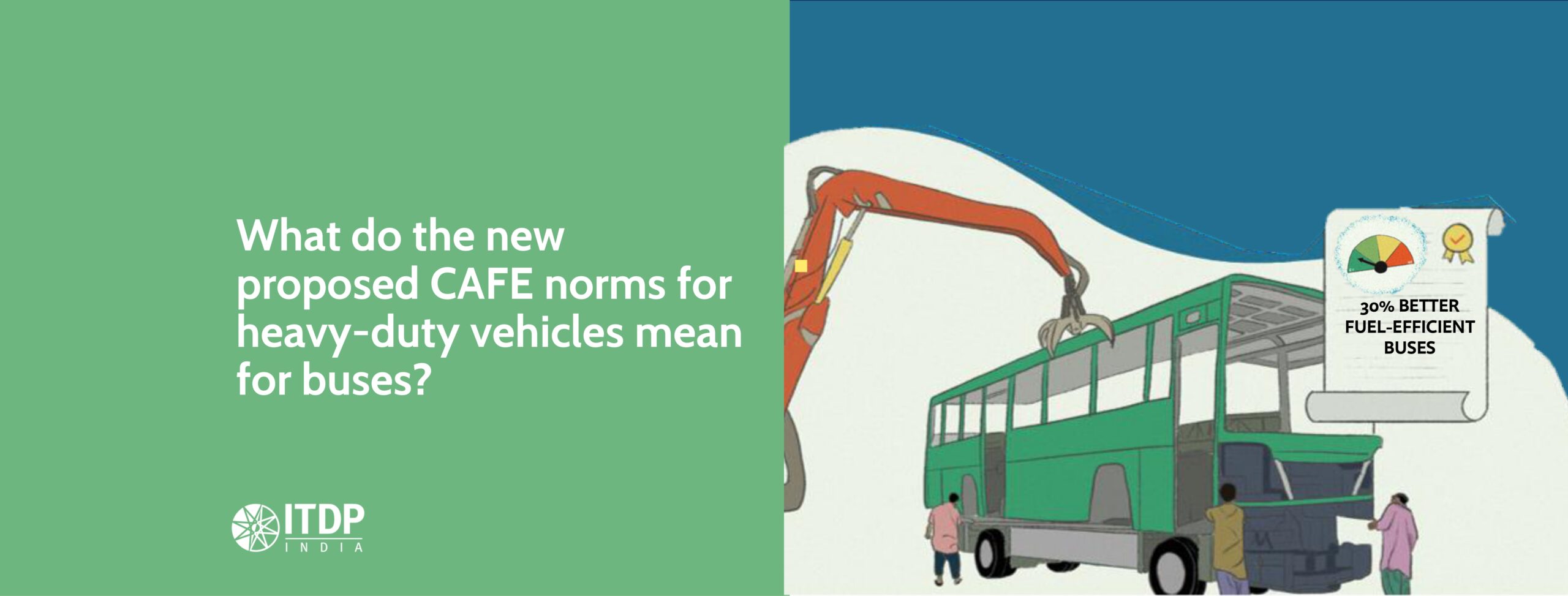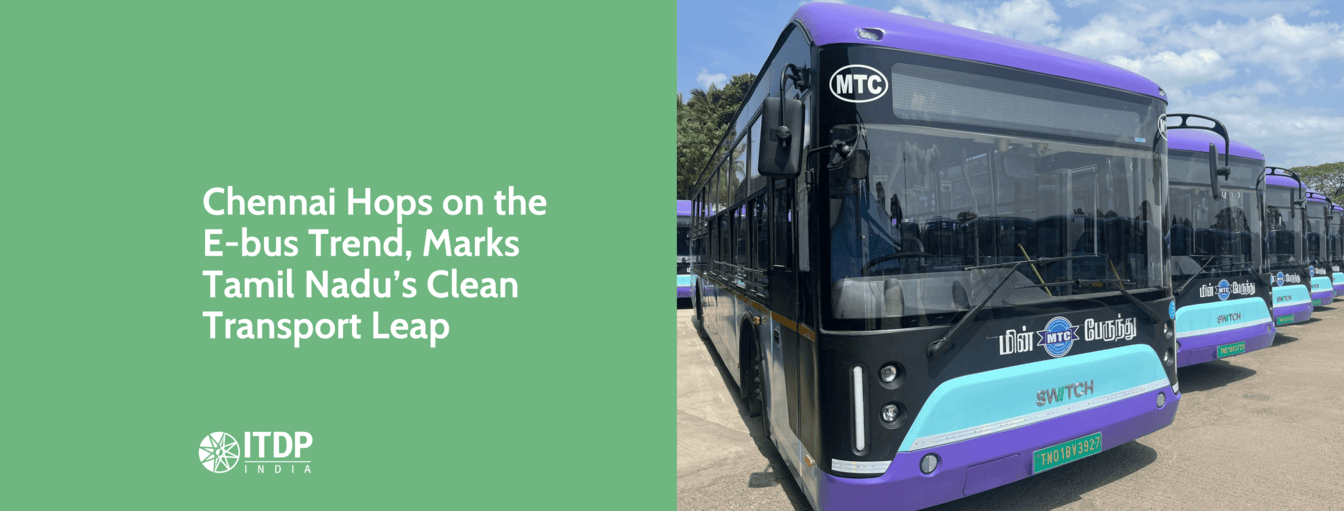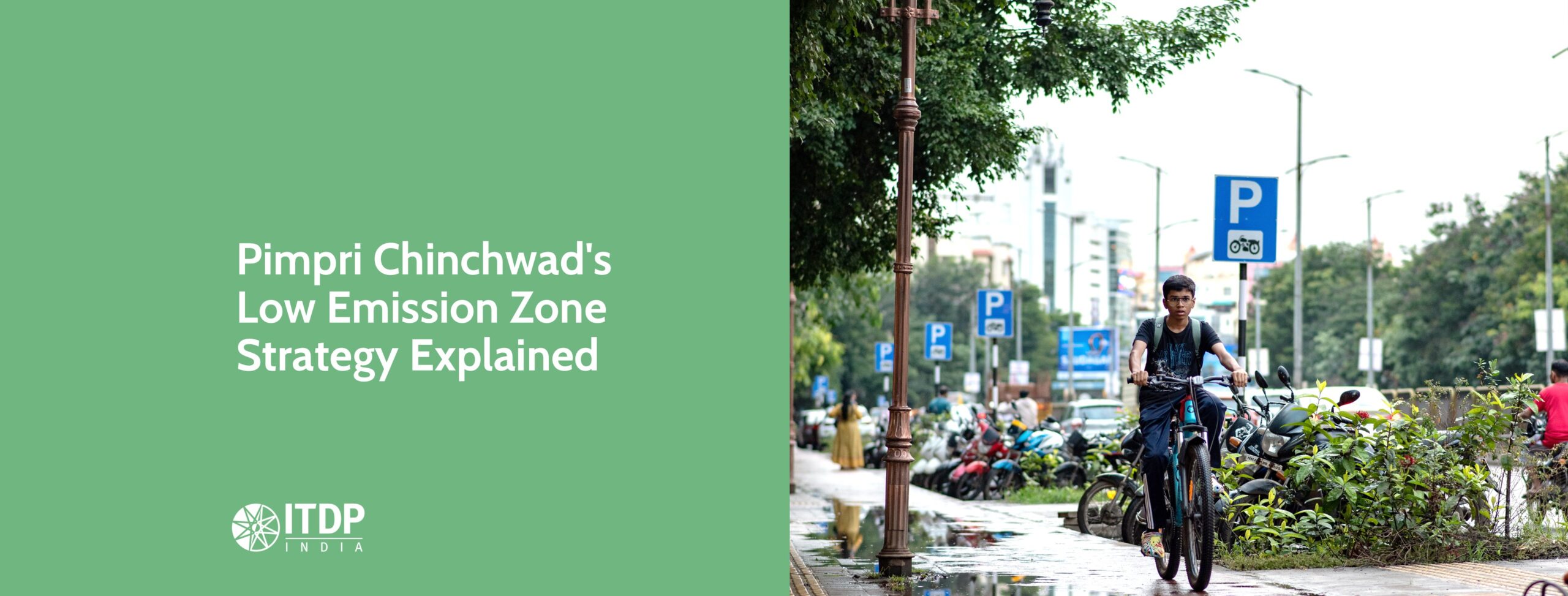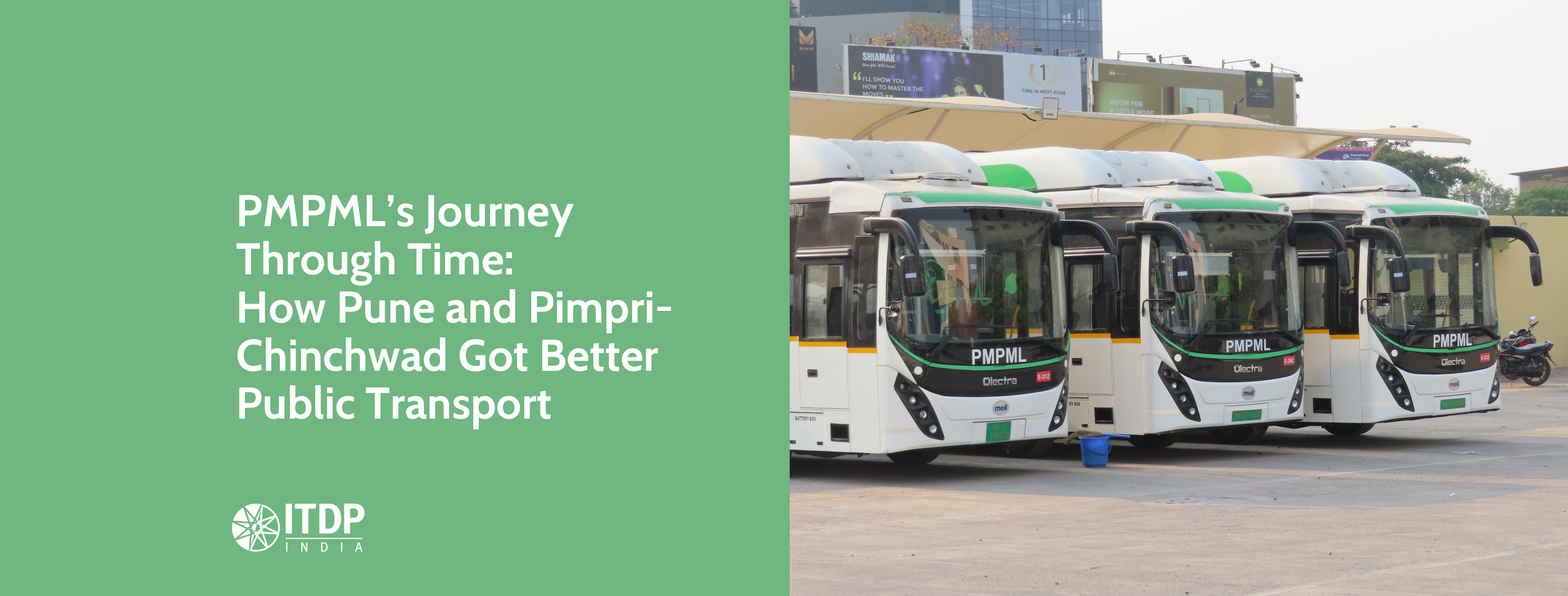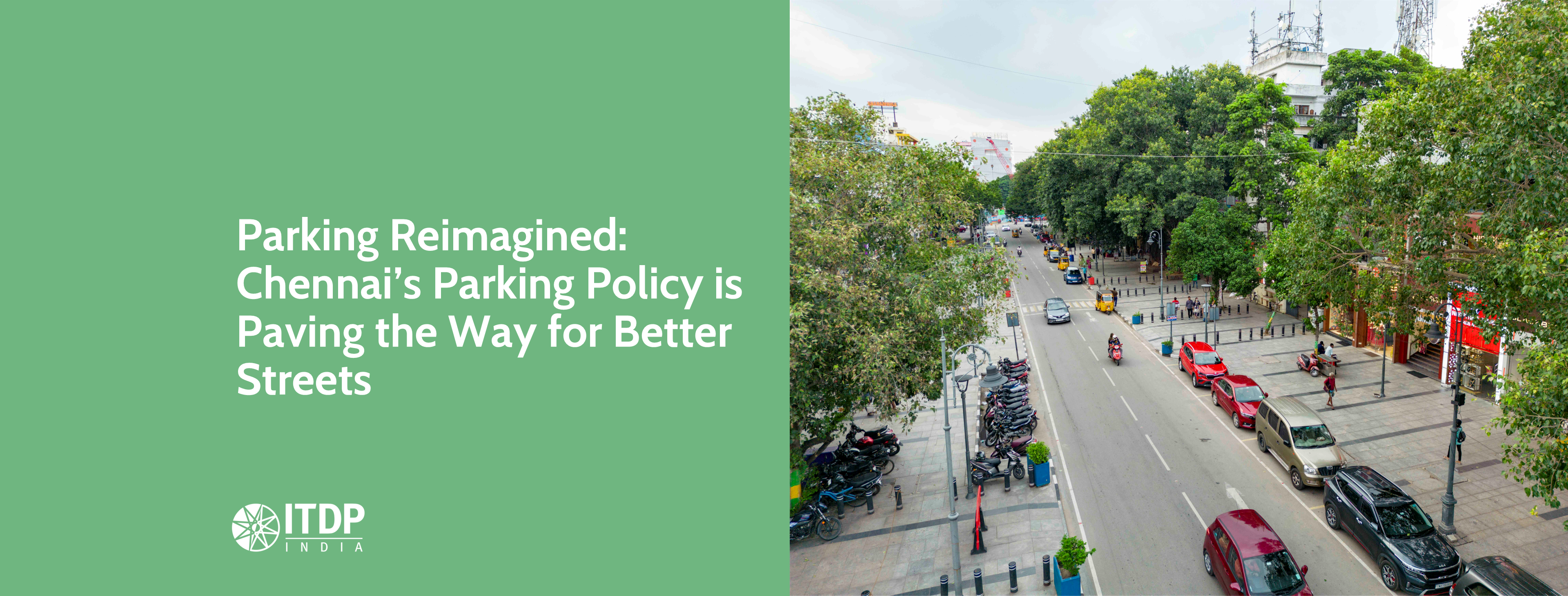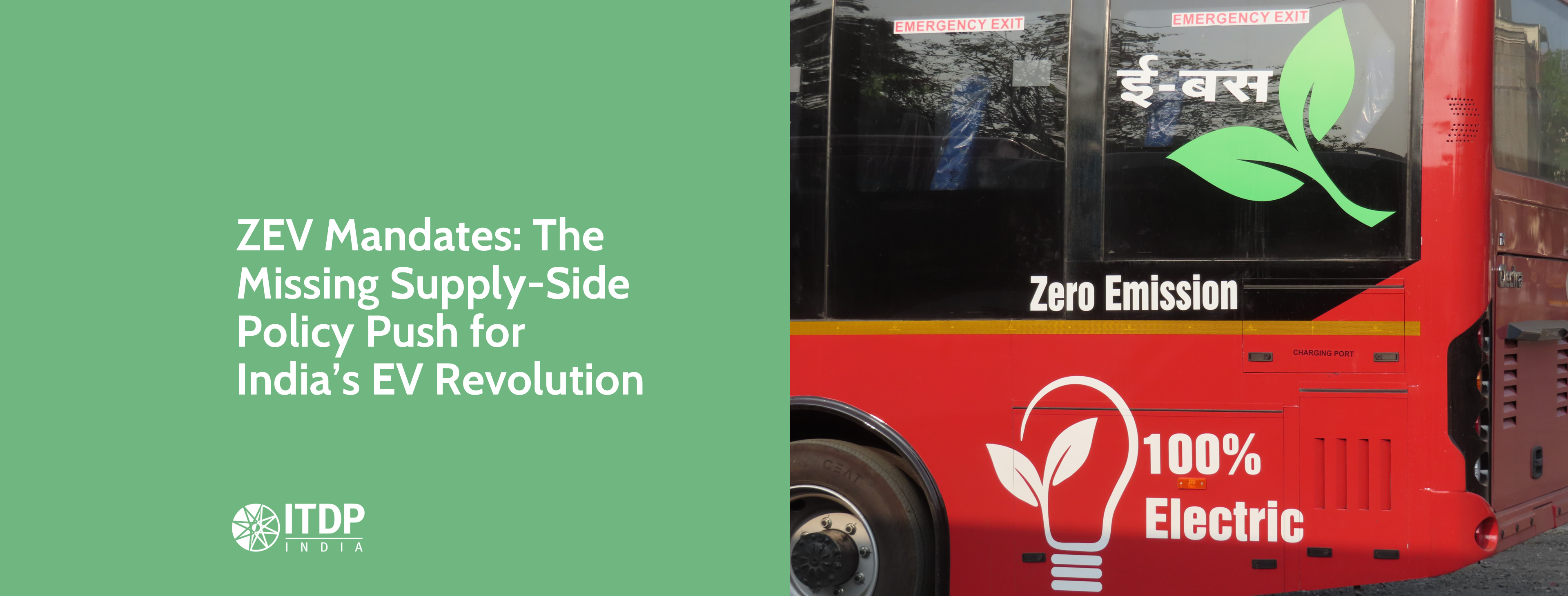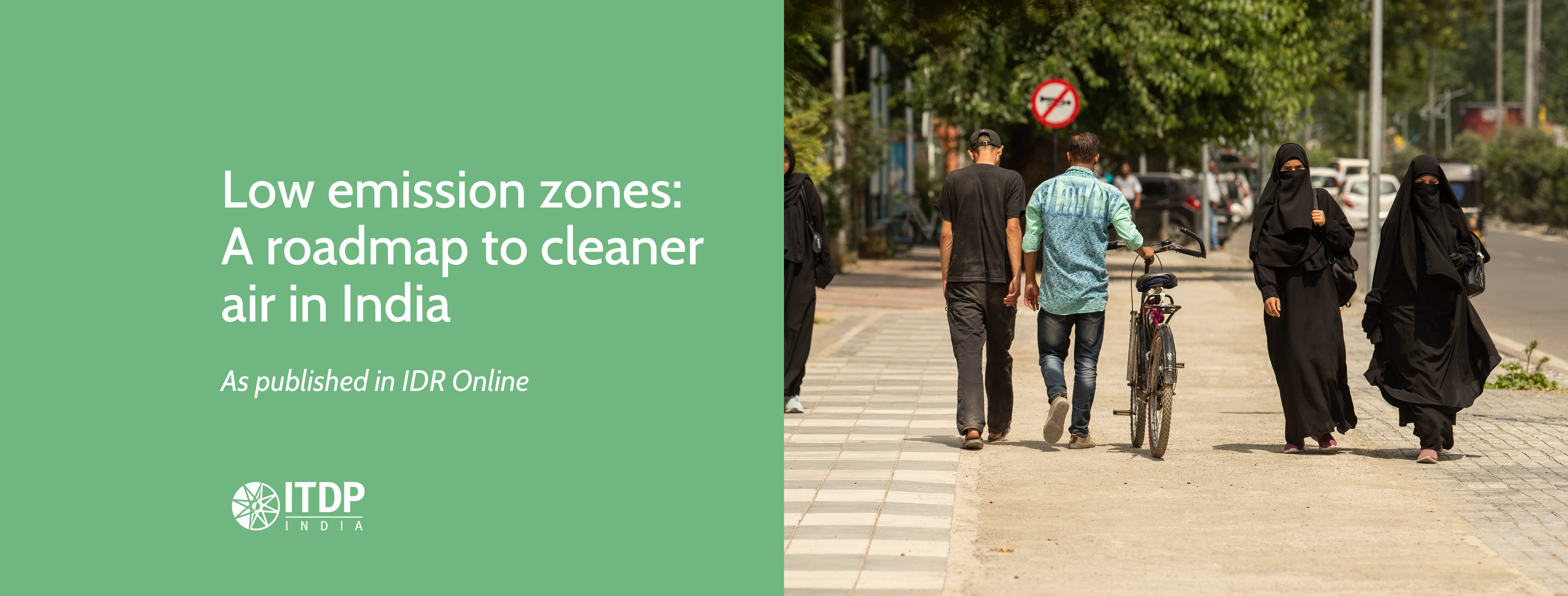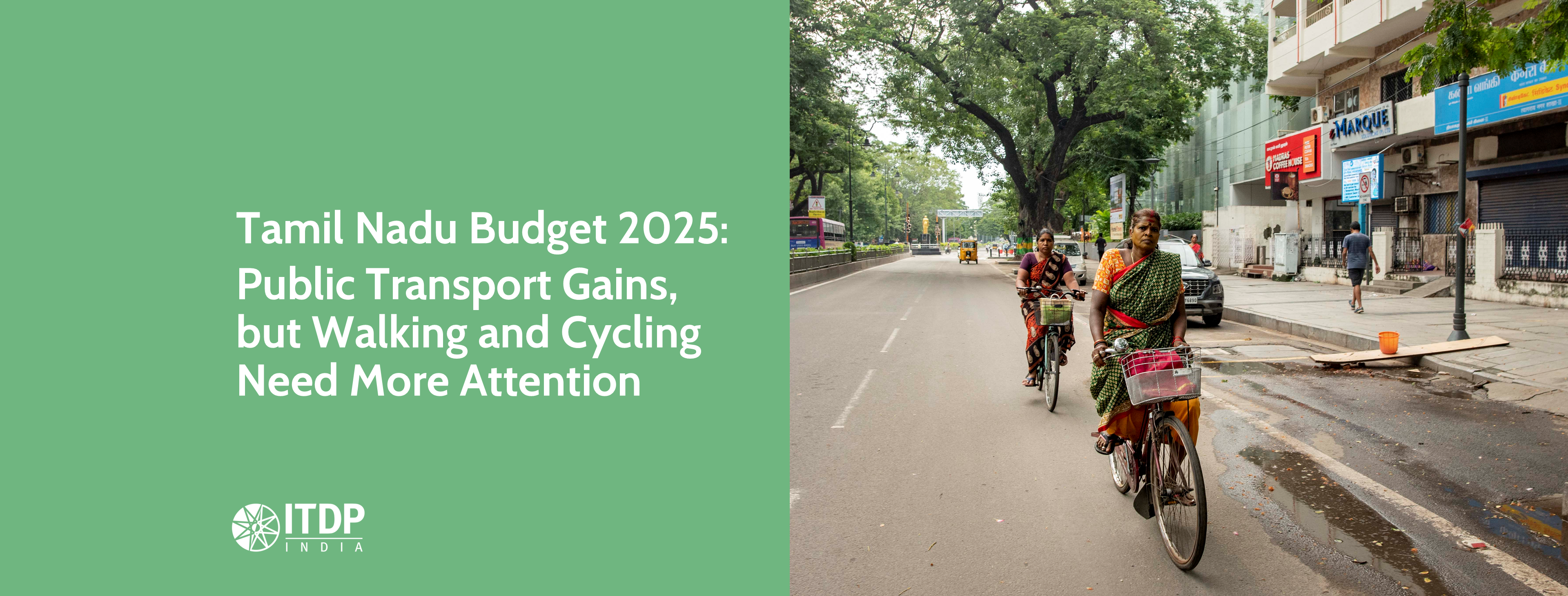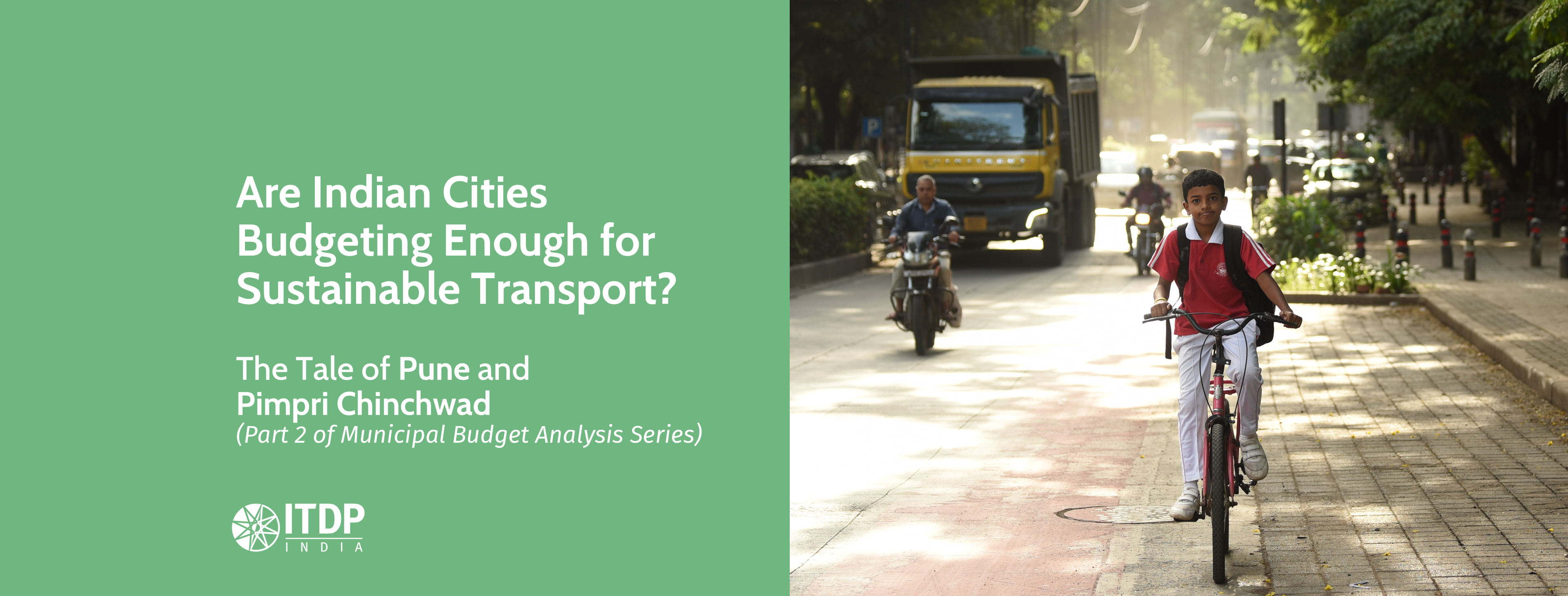

Read time ~7 minutes
Tamil Nadu is one of the few states in India where both public and private bus services have long coexisted as a system that once struck the perfect balance between coverage, affordability, and reliability. This partnership ensured that buses reached deep into neighbourhoods and mofussil routes while keeping fares affordable and services reliable.
But today, the system finds itself in a catch-22 situation leading to long waits for passengers. Government-run bus services are struggling to keep pace with growing demand and limited fleets, while private operators, are constrained by limited permits and soaring diesel costs, leading to challenges in operations and expansion. The result — commuters have fewer buses to rely on, forcing them to be dependent on personal vehicles leading to worsening air quality and congestion.
But there is a silver bullet, which can help salvage the situation.
A new study by ITDP India, Accelerating Sustainability: Electrifying Tamil Nadu’s Private Bus Sector, offers a way out of this deadlock. By electrifying private stage carriage buses through a leasing model, the state could bridge its bus deficit and curb emissions but also help private operators expand profitably, all at once — turning this catch-22 into an opportunity for cleaner, more reliable public transport.
But how bad is the bus problem in Tamil Nadu to begin with?



The Bus Shortage Problem
Buses are the backbone of Tamil Nadu’s urban mobility. There is a total of 28,500 stage carriage buses (private and government operated). These are the buses which run on fixed routes, stop to pick up and drop off passengers, and charge per head. Of these 28,500 stage carriage buses, 30%, i.e 8,600 odd are privately owned. Of these, only 7,500 buses are currently operational on the road every day.

Relying on these 7,500 odd private buses every single day, are a whopping, 48 lakh passengers!
What’s worse? There are 63 urban cities in TN with populations over one lakh, but of the 63, only 12 cities operate city-bus services, using a combined fleet of 7,909 buses (public and private).

To meet current demand of 48 lakh passengers, Tamil Nadu would need at least 15,000 buses—roughly double what’s available (8000 odd).
Projections for 2030 and 2040 show the gap widening further, making urgent action essential.
- By 2030, demand will rise to 20,300 buses across 63 cities.
- By 2040, nearly 23,300 buses will be required across 74 cities.
These numbers show that we need more buses – not necessarily private. That said, private operators are better positioned to step in and bridge this gap, given their already vast fleets provided the right incentives are in place. The latest ITDP India study proposes that this can be taken up in most sustainable way by issuing fresh permits for private buses, with a clause of using just e-buses.
Why expand through Private Buses? The Case for New Permits
So, it is clear, urban areas in Tamil Nadu need at least 15,000 additional buses. Expanding the government fleet alone would be slow and costly. By issuing 7,000 new permits, all exclusively for electric buses, Tamil Nadu could see substantial improvements within the next 5 years. Further more, e-buses are not just good for urban air quality but also for exploring innovative financing options.
It is crucial to note that a major roadblock to this expansion is that no new permits for private stage contract buses have been issued since 1972.
But electrification can be costly upfront, so how can it be made affordable?
One of the biggest barriers to electrification is the high upfront cost of e-buses. A leasing model can be allowed in Tamil Nadu to eliminate this challenge, making it easier for private operators to switch to electric buses.
Leasing will enable operators to access e-buses at lower costs, allowing for faster electrification. The government could also include leasing provisions in new permits, along with financial incentives.
How this works is that, typically, instead of spending crores to buy an e-bus for upward of ₹ 1 crore, leasing allows the operator to run buses in just ₹ 3-3.5 lakhs every month. In this, only ₹ 1.8-2 lakh will be given to “Fleet Aggregators” or “Rolling Stock Supply Company (ROSCO),” as fixed lease charge. There will be no other additional cost, interest, or EMIs only security deposit which is equivalent of down payment around ₹ 10–12 lakh which is refundable at the end of the lease period. This will make electric buses more lucrative for markets and increase electrification. By transitioning to e-buses, an operator can save at least ₹ 13 lakh per bus annually on rising diesel costs.
Leasing also ensures higher service quality, as the government can set clear benchmarks for leasers—such as: air-conditioned buses, wheelchair accessibility, National Common Mobility Card (NCMC) compatibility etc.

Private Operators Support the Shift to E-Buses
To gauge industry response, ITDP India conducted a survey with 250+ private bus operators in Tiruchirappalli, Erode, Cuddalore, Tiruvannamalai, and Dindigul. The findings revealed that 60% of operators are willing to adopt e-buses, provided the government supports them with necessary support like: dry leasing options, lower interest rates, financial aid for electrification, charging infrastructure etc. They stated that they can transition around 1500 old diesel buses to electric in next 3 years.
A key driver behind this interest is the soaring cost of diesel, which accounts for 60% of total operating expenses for private buses.





Electrification: A Game Changer for Emissions Reduction
Beyond transport benefits, electrifying 8,500 private buses could drastically cut Tamil Nadu’s carbon footprint. ITDP India’s analysis estimates that full electrification would:
- Save ₹ 1.6 crore in fuel costs per bus over 12 years;
- Prevent 87.83 lakh tonnes of CO₂ emissions over 12 years, equivalent to planting 39 crore trees;
- Cut daily CO₂ emissions by 2,033 tonnes, accelerating Tamil Nadu’s net-zero targets.
This transition also aligns with India’s Sustainable Development Goals (SDGs), particularly SDG 7 (Affordable Clean Energy) and SDG 13 (Climate Action).
Way Forward: Policy Action for a Greener Future
ITDP India has prepared a detailed report with technical analysis on how to bring in this shift. The report recommends several key steps like-
1. Regulatory reforms such as recognising the lease model in the stage carriage permit condition,
2. Establishing leasing framework for e-buses
3. Establishment of e-bus leasing company
4. Piloting e-buses across various cities to evaluate energy and operational efficiency.
5. Expanding charging infrastructure, with special tariff for e-buses.
6. Policy for new permits exclusively for e-Buses
7.Provide scrappage incentives to operates to scrap old diesel vehicle
By following such recommendations, Tamil Nadu can ensure that its public transport system which has long thrived on the partnership between state-run and private buses can prosper in years to come, sustainably. Going forward, electrifying private stage carriage buses through innovative leasing models can allow the state, to not only expand bus availability rapidly, but cut emissions, and make services more sustainable and reliable. Supporting private operators to modernise their fleets isn’t just a policy option, it’s a necessary step to future-proof Tamil Nadu’s mobility and air quality.
If acted upon, this approach could once again position Tamil Nadu as a leader in public transport, where government and private players work hand-in-hand, commuters move without compromise, and the state streets hum with cleaner, quieter, and more efficient e-buses.
Written by Aditya Rane, Senior Associate, Transport Systems and Electric Mobility and Donita Jose, Senior Associate, Communications.





